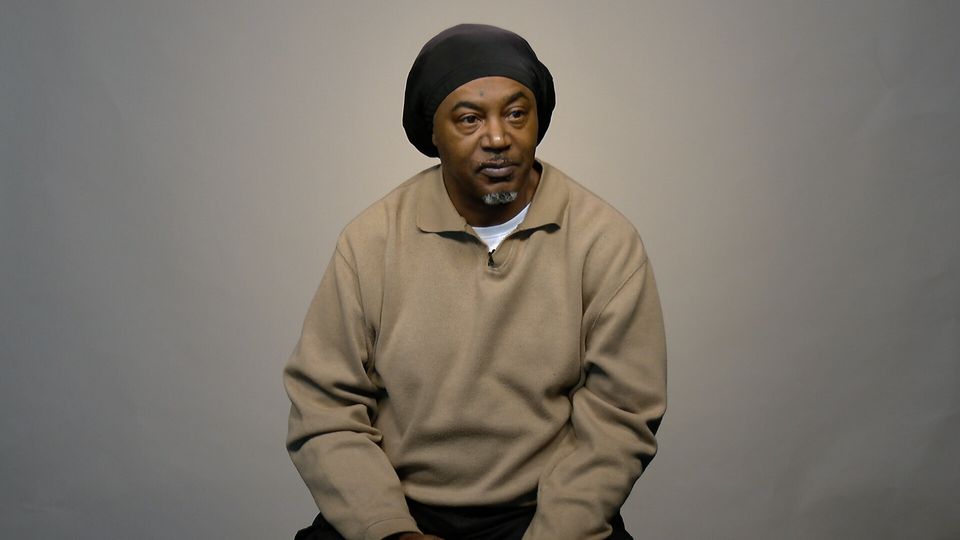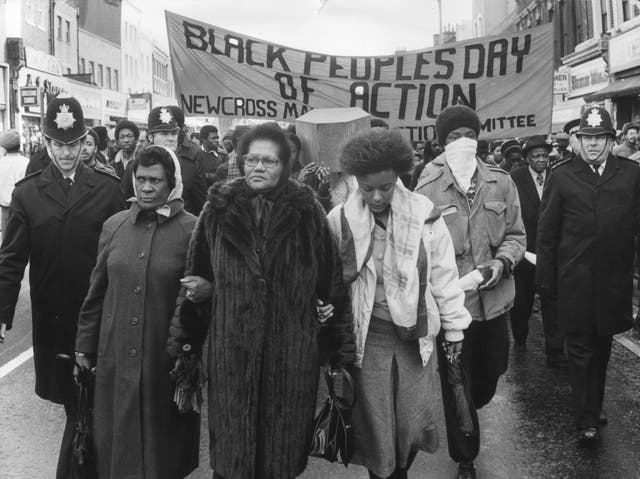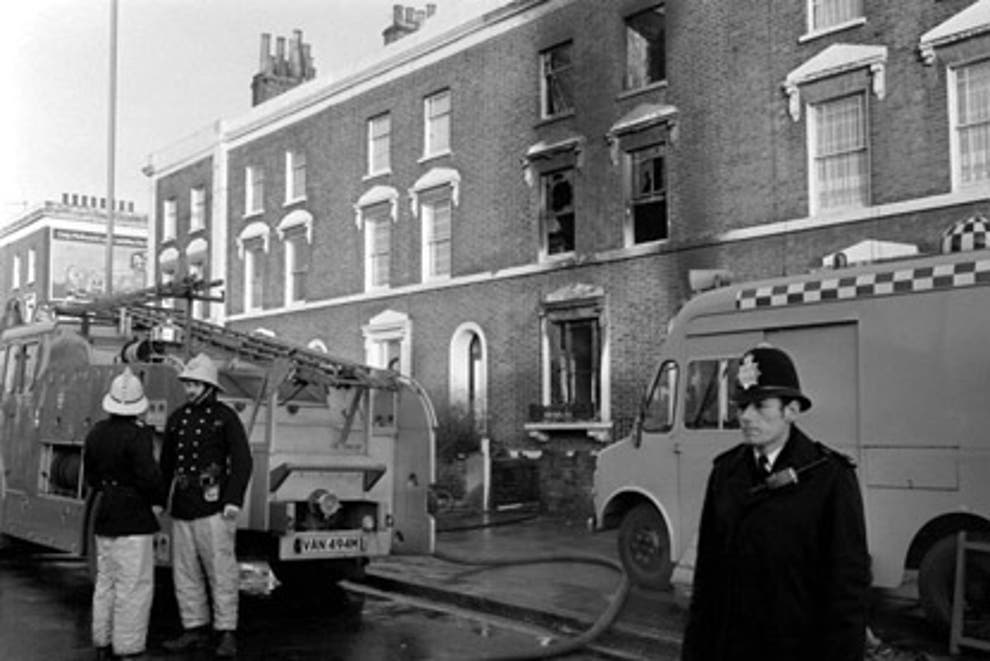1981 New Cross fire which killed 13 ‘wasn’t racist attack,’ survivor says amid new fears over prison confession
Exclusive: “A lot of people refuse to do their research because they want to believe that a white person did it; how did the alleged white arsonist get past the doors and into the party?” Wayne Haynes told The Independent.

Your support helps us to tell the story
From reproductive rights to climate change to Big Tech, The Independent is on the ground when the story is developing. Whether it's investigating the financials of Elon Musk's pro-Trump PAC or producing our latest documentary, 'The A Word', which shines a light on the American women fighting for reproductive rights, we know how important it is to parse out the facts from the messaging.
At such a critical moment in US history, we need reporters on the ground. Your donation allows us to keep sending journalists to speak to both sides of the story.
The Independent is trusted by Americans across the entire political spectrum. And unlike many other quality news outlets, we choose not to lock Americans out of our reporting and analysis with paywalls. We believe quality journalism should be available to everyone, paid for by those who can afford it.
Your support makes all the difference.A survivor of the New Cross fire of 1981 which killed 13 Black partygoers has dismissed fresh allegations of police cover-up after renewed speculation that the blaze was started by a racist arsonist.
Wayne Haynes, 58 - who suffered life-changing injuries in the tragedy including 140 skin grafts from first degree burns -spoke of his upset and disappointment about “untrue” theories over the horrific blaze.
He said reports claiming police failed to fully investigate a confession made by jailed murderer Michael Smithyman between 1991 and 1993 were ‘triggering’ and would not help get to the truth.
Smithyman, who was 14 at the time of the tragedy, reportedly told officers that he had tried to gatecrash the party with another teenager who began the blaze in revenge after they were refused entry.
Since the article was published over the weekend, social media has been awash with speculation about the cause of the fire while Wayne continues to receive numerous phone calls from campaigners celebrating what has been regarded as a long-awaited uncovering of truth. He had to pause our interview just to take a call from a well-wisher about this very topic.
This is all much to his annoyance because Smithyman’s confession has been in the public domain for years.
Police found no evidence to support Smithyman’s confession, which was one of several made from inside jail between 1991 and 1993. The convicted killer, who now lives as a woman in prison, retracted the confessions and denies being present when the New Cross fire started.
Mr Haynes said: “We need to stop doing this. People listen to everything that comes out about the New Cross fire only to get [hopes] built up and then torn back down. Emotionally, it’s no good for us, as survivors, in particular.
“If you do the research, you’ll find out that this information came out before. So what new news have we found out from the same damn man?”
Mr Haynes, who jumped from a window, suffered life-changing injuries including 140 skin grafts from first degree burns. He smashed his hip into 163 pieces, damaged his sciatic nerve and up until this day cannot feel anything below his knee.

“As a survivor, I feel triggered by these discussions and the furore around it is irritating because all it’s doing is upsetting a whole bunch of people - again, winding up the Black community - again, only for the matter to get dropped again,” he continued.
“It will then cause further division which makes it harder for us to get to the bottom of anything.”
He added: : “The one thing that people can’t seem to get into their heads is this: the fire started inside the party, not outside. This is a proven fact. How the hell did someone walk in that house from off the street, start the fire and walk back out?
“Smithyman and his friend may well have come to the door and couldn’t get in but someone would’ve at least remembered two white boys approaching the venue - but nobody recalls this.
“A lot of people refuse to do their research because they want to believe that a white person did it; how did the alleged white arsonist get past the doors and into the party?”
Mr Haynes, who worked closely with the Metropolitan Police during a second inquest into the disaster in 2004, said he remains satisfied with officers’ enquiries and believes that people within Lewisham’s own Black community know the truth behind how the fire started.
However, he maintains that the initial police response in 1981 was woefully inadequate and the Conservative government failed to support those affected by the fire - and are still failing in this regard.
“When the Black community locks shop and puts up a wall of silence regarding what goes on within our community - nothing comes out. But yet people are left standing there and speculating. There’s so much more to this story.
“The people who know what really happened are already dying out and are going to take that to their grave. But if it was a racist attack … we would’ve known a long time ago. Racists like to boast about their accomplishments.”

The blaze broke out on 18 January 1981 at a joint birthday party for Yvonne Ruddock and Angela Jackson at 439 New Cross Road in Lewisham. The party had begun the night before and gone over into the next day.
In addition to the 13 who died in the fire, 27 were injured and a 14th took his own life two years later.
At the time, the area saw a lot of racist attacks and far-right political activity, with the National Front having a significant presence. There was a significant amount of racial tension across London.
In the immediate aftermath of the blaze, the police were accused of not properly investigating what happened while the government and Royal Family were silent on the issue without so much as a message of condolences to the families affected.
For many, it seemed as though Black lives did not matter. A decision to mobilise, as seen through the Black People’s Day of Action demonstration in March 1981, was borne of this frustration — a feeling that has endured through the decades since the fire.
“True justice would look like 65 Black people, who were affected by the fire, being made multi millionaires by the Government where they haven’t received compensation,” the 58-year-old said.
“No disrespect to those who did try to help but a lot of so-called activists made their names off the back of the tragedy - TV appearances, radio shows, big jobs,” said Mr Haynes. “Yet the survivors and bereaved families are still here waiting for compensation.”

He is currently working with 20 other survivors to push for a third inquest in hopes to change the open verdicts, which were returned two times previously in 1981 and 2004, to one which reflects the fact that the victims were unlawfully killed.
The group also plan to launch a charity to support those affected by the tragedy and “help forward the aspirations of young, Black people of Caribbean heritage”.
Mr Haynes is receiving counselling paid for by the BBC after he participated in the Uprising documentary in July by Steve McQueen and James Rogan, one year after he appeared in a 2020 documentary co-produced by Nadine White about the Black People’s Day of Action march.
“This Government doesn’t care about the people of this country, whether they’re Black or white; they’re quite happy to have in-fighting in this country among the racists and religions in this country because it helps them to keep control,” Mr Haynes said.
“And I’m still in therapy because I’ve only just realised how much the fire affected me. That’s what counselling does for you; every Monday, I end up crying my eyes out because of things that I’d blocked out for years.”
Join our commenting forum
Join thought-provoking conversations, follow other Independent readers and see their replies
Comments